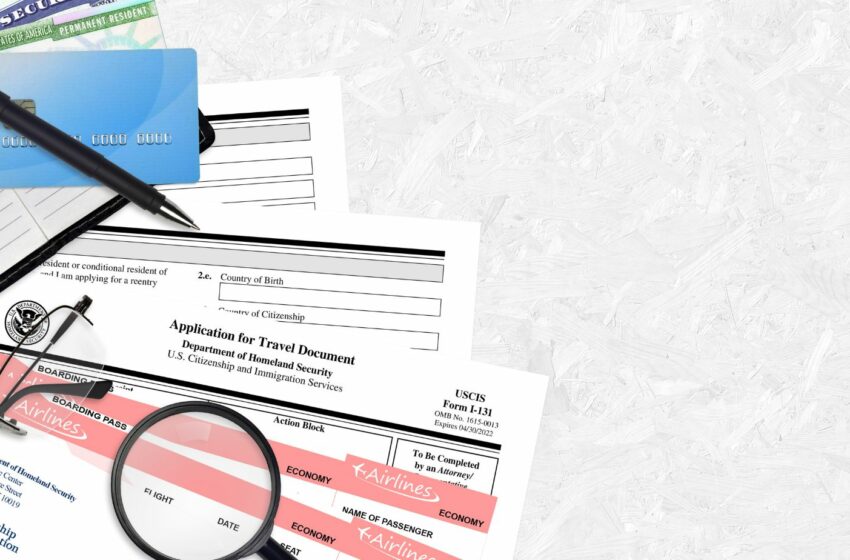
Travel Documents For College Students
When traveling for college, certain important documents are necessary to avoid any legal troubles and ensure a smooth journey. These documents include:
- a government-issued ID card,
- passport (if traveling internationally),
- visa (if applicable),
- medical insurance card,
- and travel itinerary.
It is recommended to make copies of all these documents and keep them in a separate location from the originals.
It’s critical to obtain and maintain these documents because they provide proof of identity, citizenship, residency status, and health care coverage. These are crucial aspects when traveling domestically and internationally. Not only do they ensure security for the student but also peace of mind for parents who can be reassured that their child has everything they need while away at college.
It’s essential to keep these travel documents updated as required by law because being caught without proper documentation can result in fines, detention or even deportation. Keeping an eye on expiration dates of passports and visas is extremely important as it may take weeks or months to renew them.
Pro Tip: Always double-check your travel documents before leaving home to avoid complications during transit.
Pack your passport, ID, and a sense of adventure – the essential travel documents for any college student wanderlust-ing their way through their studies.
What Documents do I Need to Travel to College
When planning to travel to a college destination, there are essential travel documents that every student must carry. These documents increase your mobility and allow you to identify yourself when needed by authorities.
These are the top 5 essential travel documents that every college student should have:
- Your valid passport or visa
- A government-issued ID card
- Your college acceptance letter or student ID
- Your airline tickets or confirmation email from the airline
- Copies of all these essential documents in case they get lost or stolen on your trip.
It is crucial to note that each country has its unique requirements for entry, including necessary vaccines and negative COVID tests. Therefore, check your destination’s requirements with sufficient time before your trip. This ensures that you have adequate time to prepare all related travel documents.
Several students have experienced travel challenges because they did not have the required travel documentation. It is vital to plan ahead and ensure you have all travel-related paperwork correctly done before departing.
In times past, many students traveled without appropriate documentation, leading them into trouble with immigration authorities upon arrival at their destinations. This resulted in delays and cancellations for many students, affecting them in so many ways.
Don’t forget your passport, unless you’re okay with spending your semester abroad in the airport terminal.

Additional Travel Documents to Consider
As you prepare to travel to college, there are other essential travel documents besides your passport and visa. It is crucial to consider the following additional travel documents:
- Proof of Enrollment will demonstrate that you are a student at the college and can help avoid unnecessary delays while passing through customs.
- Medical Records
- Travel Insurance coverage documents for your safety.
- Vaccination Records
- Credit/Debit Cards and Cash
- Emergency Contact Information and some money in a safe place.
A unique point to note is that most colleges issue Student IDs that can double as debit cards or meal plans on campus. A good example is the University of Washington’s Husky Card.
According to Forbes Magazine, 20 percent of U.S citizens admitted they had lost their passport while traveling abroad. Protect your travel documents like they’re your first-born child, because losing them is a real passport-pocalypse.
Tips For Keeping Travel Documents Organized And Safe
To ensure the safekeeping of your essential travel documents, it is crucial to follow a few practical tips. By doing so, you can stay organized while also ensuring that your documentation remains secure.
- Make digital copies of all necessary travel documents and save them in cloud storage accessible from anywhere.
- Create physical duplicates and keep them in different bags or with travel companions.
- Bring only the necessary documents to minimize the chances of losing any important paperwork.
- Keep all travel papers in a waterproof and durable folder that will fit comfortably inside your bag without damaging the document.
- Make an additional checklist and sign it for verifying all essential papers before starting your trip.
It’s essential to take extra precautions when carrying sensitive documentation like passports, visas, etc. Having multiple copies will increase the likelihood that you have all the necessary papers in case one goes missing. While traveling, ensure that you keep your documents with you at all times. You never know when a delay or layover could occur where documentation may be required unexpectedly. Ensure that you keep all relevant paperwork handy. To add another level of protection, consider getting a document organizer or wallet with RFID blocking technology. It would protect your vital information from being accessed by someone else’s scanner devices during travel. Implement these measures carefully when traveling with official documents; they will reduce risks and help avoid any stressful situations arising during travels. Time to pack up your travel documents and head to college, because the only thing scarier than a final exam is TSA security.

Conclusion
This guide aims to provide college students with the necessary documents required for traveling. Knowing which travel documents are essential is vital for a hassle-free trip. Students should always carry their valid passport, visa (if required), flight tickets, and identity proof issued by the school/college. Additionally, it is recommended to have an international student ID card and health insurance. Being prepared beforehand not only saves time but also avoids last-minute anxiety.
Some countries require more specific documents than others. For example, if traveling to the USA or Canada, students must possess an I-20 form or acceptance letter from their university/college and SEVIS fee receipt along with their other travel documents. In contrast, other countries like Australia require Overseas Student Health Cover (OSHC) as compulsory before issuing a student visa.
It’s important to do research and know what additional documents may be demanded according to your destination country’s laws and regulations regarding students’ entry. Always double-check before departure day!
Did you know? According to the Institute of International Education’s Open Doors report of 2020, over one million international students pursued higher education in the USA during the academic year 2019-2020 despite disruptions caused by COVID-19 pandemic limitations on student mobility.
